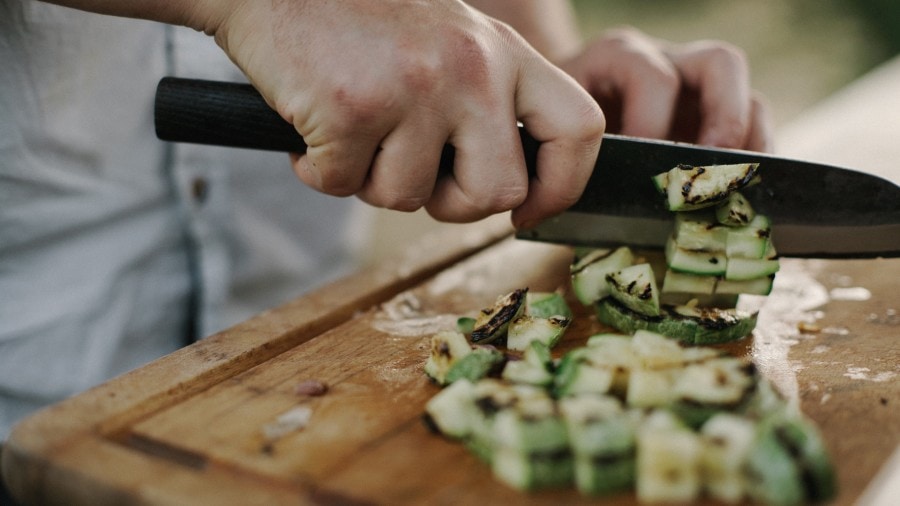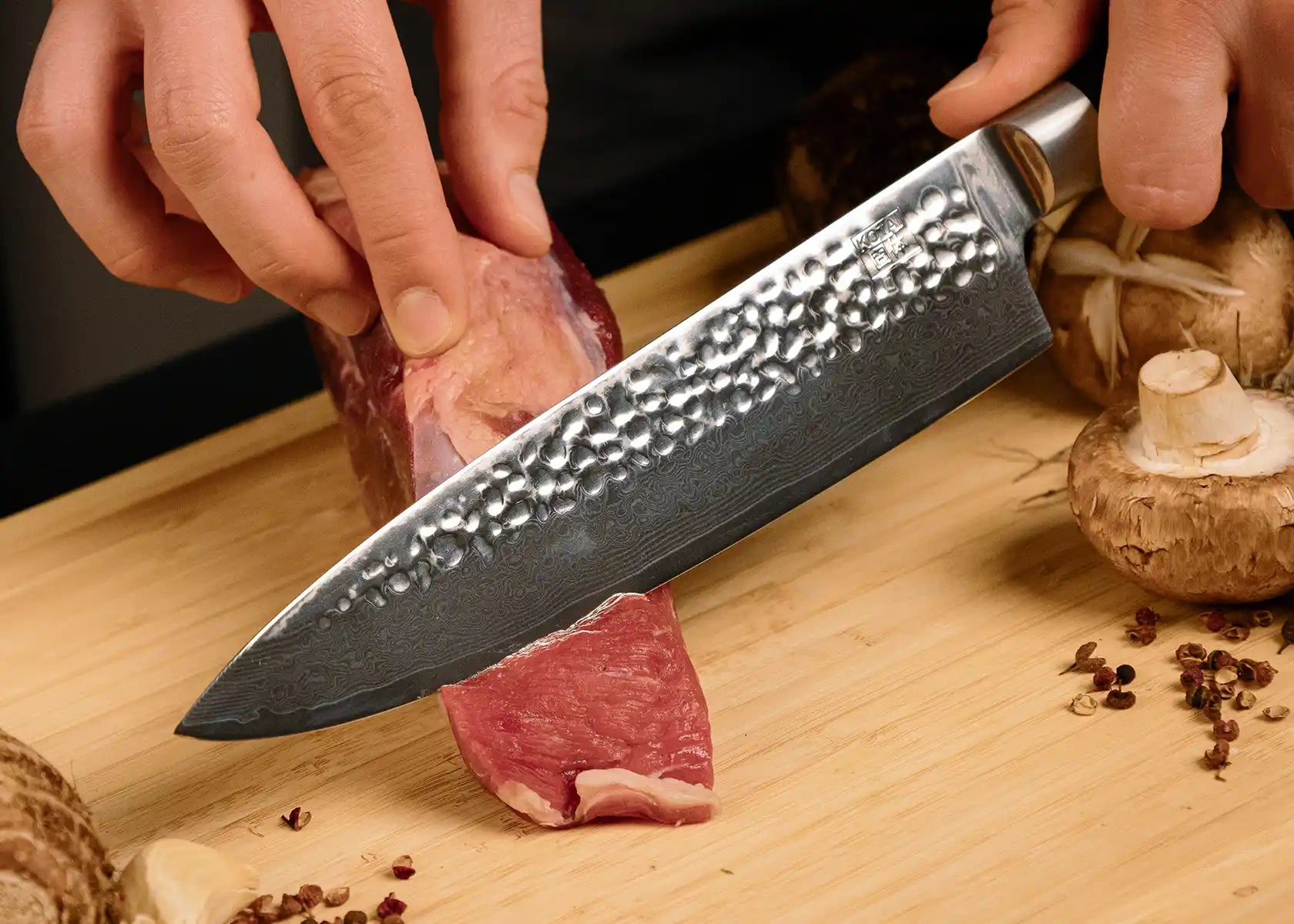For any kitchen professional, the debate between hand-forging vs machine-made Damascus steel is an engaging topic that stirs up much discussion. The allure of Damascus steel, with its distinctive wavy patterns and unrivaled reputation for strength and sharpness, has been prominent in the culinary world. But what exactly sets apart hand-forged Damascus from its machine-made counterpart?

The Timeless Art of Hand-Forging
The process of hand-forging Damascus is a time-honored craft, requiring immense skill and patience. Blacksmiths meticulously fold and weld layers of steel, usually high-carbon and nickel-rich alloys, to achieve the signature pattern. Each blade is unique, reflecting the artisan's expertise and dedication. This real Damascus process not only results in stunning aesthetics but also guarantees a tough, resilient blade that retains its edge.
For professional chefs, hand-forged Damascus offers more than just beauty and function. It embodies a connection to ancient craftsmanship, a testament to the quality that a carefully hand-forged knife can provide over countless hours in the kitchen.
The Efficiency of Machine-Made Damascus
Machine-made Damascus, on the other hand, leverages the benefits of modern technology to replicate the layered patterns associated with traditional Damascus steel. This method allows for consistent production and often at a more affordable price point. However, it typically lacks the uniqueness and craftsmanship of individually hand-forged pieces.
While commercially available, machine-made Damascus knives are beneficial for entry-level professionals or those new to the culinary arts. They offer a practical balance of functionality and aesthetics without the higher investment of hand-forged products.
Performance in the Kitchen: Which to Choose?
For many kitchen professionals, the decision between hand-forged and machine-made Damascus knives ultimately comes down to performance and personal preference. Hand-forged knives can provide superior sharpness and edge retention, making them ideal for precision tasks like sashimi or fine herb chiffonade. On the other hand, machine-made knives may suffice for general kitchen tasks if budget constraints are a consideration.
The potential for top performance in demanding kitchen environments means investing in hand-forged knives can be immensely rewarding. However, the efficiency and relative affordability of machine-made options must not be overlooked, especially for developing skills in professional kitchens.
Understanding Quality and Authenticity
The secret to valuing hand-forging vs machine-made Damascus lies in understanding both the quality and authenticity of the steel used. Enthusiasts recommend verifying the source and reputation of manufacturers, ensuring the knife truly represents the quality expected in professional culinary tools.
Resources like the Serious Eats guide find that understanding the differences is key to informed decision-making.
Conclusion: A Fusion of Craftsmanship and Technology
The choice between hand-forged and machine-made Damascus knives is a balance of tradition versus modernity. For kitchen professionals aware of the history and potential of Damascus, both options offer distinctive advantages, whether it be in custom hand-crafted elegance or precision-engineered practicality.
Whichever you choose, ensuring your tool is up to the best standards remains crucial for any culinary creation. Exploring the fascinating world of Damascus steel helps inform these essential kitchen decisions.
Additional Insights for Culinary Experts

FAQs on Damascus Steel Choices
-
How does hand-forged Damascus differ in performance?
Hand-forged Damascus typically offers enhanced sharpness and edge retention, making it a preferred choice for precise culinary work.
-
Are machine-made Damascus knives good for professional use?
While generally less unique, machine-made Damascus knives are suitable for day-to-day tasks, especially within a limited budget.
-
What should I look for when buying a Damascus knife?
Look for authenticity, manufacturer reputation, and ensure it meets your specific culinary needs.
This article contains affiliate links. We may earn a commission at no extra cost to you.


























